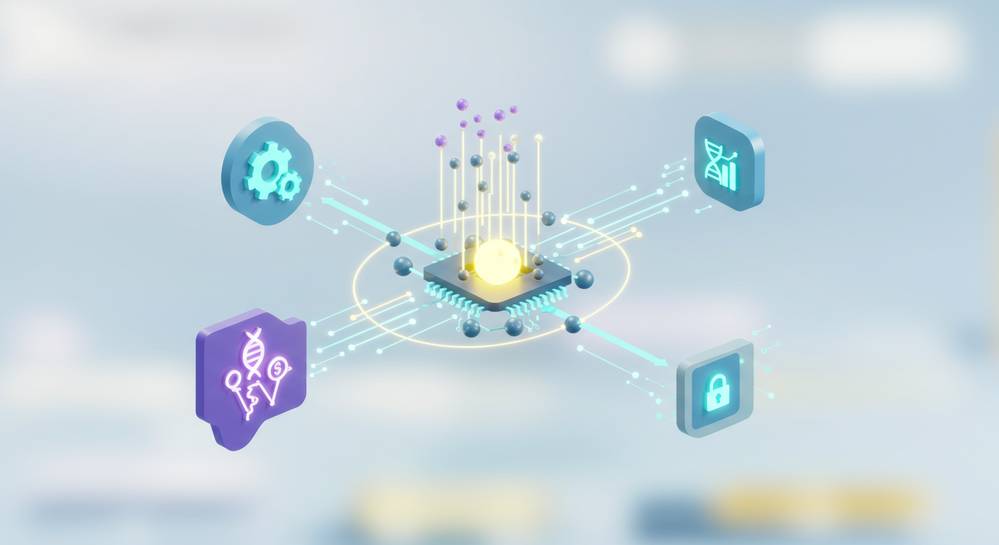The world of quantum computing is evolving at a breathtaking pace, with new breakthroughs constantly shifting the boundaries of what is possible. Keeping up with the latest quantum computing news developments is no longer just for scientists; it is crucial for anyone interested in the future of technology. This article explores the most significant recent advancements, their practical implications, and the global trends shaping this revolutionary field.
Recent breakthroughs in qubit stability and error correction

Tackling qubit instability is a top priority in recent quantum computing news developments. Qubits, the basic units of quantum information, are extremely sensitive to environmental noise, which causes data-corrupting errors. Groundbreaking progress now focuses on two key areas: enhancing the physical materials used to build qubits and designing sophisticated quantum error correction codes. These advancements are crucial for building reliable, large-scale quantum machines.
Advancements in quantum error correction
Quantum error correction is a pivotal strategy for achieving fault-tolerant computation. It works by encoding a single logical qubit across many physical qubits, creating redundancy. This allows the system to detect and correct errors without disturbing the fragile quantum state. These complex algorithms are a form of specialized artificial intelligence for quantum systems, paving the way for practical applications.
- Improved Materials: New silicon-based designs better shield qubits from interference, significantly extending their coherence times.
- Efficient Codes: Researchers have developed more efficient codes that reduce the physical qubits needed to protect one logical qubit.
- Real-time Correction: Some systems can now predict and counteract specific errors as they occur, extending useful computation time.
The role of AI and machine learning in quantum research
The synergy between artificial intelligence and quantum computing is a major focus of current quantum computing news developments. AI is proving essential for solving some of the most complex challenges in quantum mechanics. By processing vast amounts of experimental data, machine learning models can uncover patterns and optimize systems far beyond human capability. This partnership is dramatically speeding up the path to functional quantum computers.
How AI accelerates quantum discovery
Machine learning models are particularly effective at refining qubit control parameters, a task crucial for stability. These algorithms, a key component of modern undefined, analyze performance data to suggest adjustments. This creates more reliable and efficient quantum circuits. This feedback loop, where AI improves quantum systems, accelerates the entire research and development cycle.
- Optimizing Qubit Control: AI fine-tunes the delicate operations needed to maintain a qubit’s quantum state.
- Designing New Algorithms: Machine learning can explore vast mathematical spaces to propose novel quantum algorithms.
- Error Correction Analysis: AI helps identify error patterns and improves the efficiency of correction codes.
Industry adoption and practical applications on the horizon

Recent quantum computing news developments show a clear shift from theoretical research to practical industry applications. While large-scale quantum computers are still developing, companies are not waiting. They are exploring hybrid systems, which combine classical and quantum processors to gain a competitive edge today. This approach allows businesses to tackle specific, complex problems that are beyond the reach of traditional computers alone.
Key sectors exploring quantum applications
Several industries are pioneering the use of quantum technology. They are investing in research and building quantum-ready teams to solve major challenges. Access through cloud platforms has democratized this technology, allowing more organizations to experiment without needing physical hardware.
- Finance: Firms are developing advanced algorithms for risk analysis and portfolio optimization, processing countless variables simultaneously.
- Healthcare: Quantum simulations are accelerating drug discovery by modeling molecular interactions with incredible precision.
- Materials Science: Researchers are designing novel materials with specific properties, like more efficient batteries or sustainable industrial catalysts.
Geopolitical landscape and the global quantum race

The pursuit of quantum advantage is no longer just a corporate goal; it has become a central theme in global geopolitics. Major quantum computing news developments are now driven by national interests. Nations recognize that leadership in this field offers significant economic and security advantages, from unbreakable communications to new forms of intelligence. This has ignited a fierce global competition for quantum supremacy, fueled by massive government investment.
The new frontier of global competition
This international race extends far beyond building the hardware itself. Countries are strategically investing in every aspect of the quantum ecosystem to secure a long-term lead. The competition is multifaceted, shaping the future of technology and global power dynamics.
- Massive Funding: The United States, China, and the European Union are pouring billions into national quantum initiatives.
- Talent Development: A major focus is on cultivating a quantum-ready workforce through education and research programs.
- Strategic Alliances: Nations are forming partnerships to pool resources and accelerate progress.
- Setting Standards: The race includes influencing the international standards that will govern this transformative technology.
The field of quantum computing is clearly advancing beyond theoretical concepts into a tangible technological revolution. These developments in qubit stability, AI integration, and early industry adoption signal a transformative future. Keeping abreast of these changes is essential for understanding the next wave of innovation. For more in-depth analysis on technology and world affairs, visit Global Affairs News.
